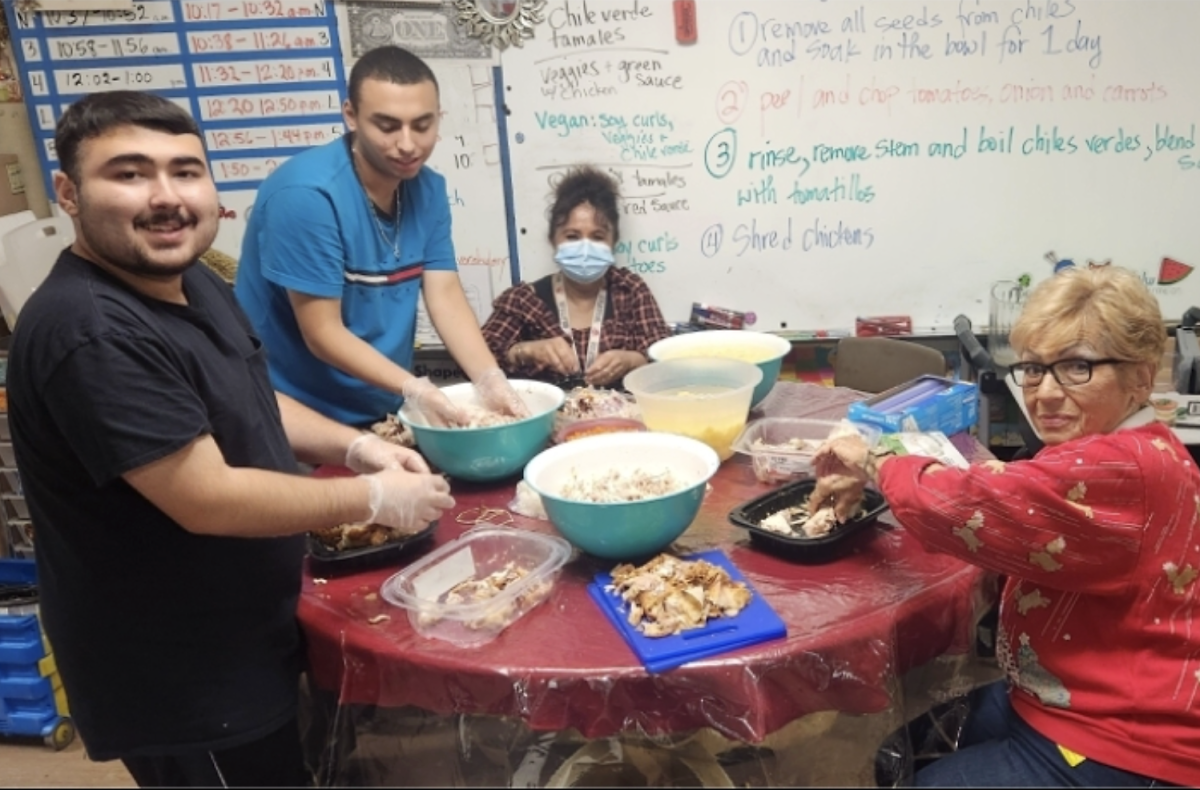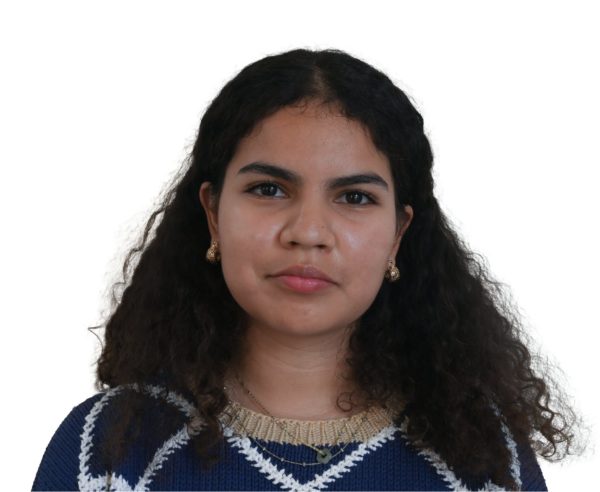Students in the Autism-A (AUT-A) Special Education (SPED) program participate in an alternate curriculum known as Community-Based Instruction (CBI), an instructional strategy that intends to promote independence in the community and at school.
Of the four special education programs, students with a disability are psychologically and academically assessed and placed in one of the programs based on their ability and needs, to develop functional skills in out-of-school environments.
In partnership with the staff at Van Nuys, teachers, students and aides in the AUT-A program collect aluminum cans, water bottles and glass from classrooms every Wednesday, sort them and then travel to a local recycling center to exchange them for money.
Ms. Valadez proposed the recycling program after she began her journey as an educator at the school.
“I proposed to the administration that we set up recycling for two reasons: to help the environment and to use the recycling sales for whatever it is that we needed,” she said. “Every year that we start, I send a message on Schoology to all teachers asking if they want to participate in the program and immediately I’d get responses back from teachers, it’s really nice.”
Ms. Valadez and her students put a great deal of effort into collecting recycling from classrooms on Wednesdays.
“It’s a lot of work to organize because most of the campus, including the offices and janitors support us,” she stated. “As best as we can, with all the level students that we have, we try to pick up all the recycling.”
She continues to explain that when her students go and collect recycling or sell holiday grams, it’s a learning experience for both general ed teachers and special ed students. It allows teachers to build relationships and become less apprehensive when it comes to interacting with students, while also allowing special ed students to practice social skills that would help them in the real world.
“It’s really nice to see when they acknowledge our kids because, for the most part, they don’t get acknowledged in the real world,” she stated. “It’s really heartwarming.”
Profits made from recycling and holiday grams fund activities for students such as going to a grocery store to buy ingredients for a meal, practicing calculating money and following a recipe.
“The whole point of it all is so that they can be the most independent possible,” she stated. “That’s our ultimate goal, how independent can you become through the program?”
In the classroom, Ms. Valadez keeps a scheduled routine with activities daily to allow her students to practice life skills such as washing dishes, walking around the quad, meditating and more.
As a way to show gratitude, students and staff in the SPED recycling program hold annual Thanksgiving and Christmas dinners for teachers who participate in the program.
Students in Ms. Valadez’s classroom prepare some of the meals and assemble silverware by making the tamales filling and wrapping eco-friendly utensils together.
“When we first started eight years ago, I had no idea if it was going to work because I had never done that with my class nor did I know if they were able to do any of it,” she said. “It’s been a success since we started and the teachers look forward to it every year.”
When deciding what foods to serve, Ms. Valadez pays homage to her family by implementing the foods and customs she was raised on.
“It’s also a lesson we go through in our program, holidays and our traditions,” she says. “It’s something they can relate to or if they’ve never experienced, something to look forward to being a part of because not everyone celebrates the holidays or can afford to.”
Some teachers and aides go as far as donating items to help the special education program assemble holiday grams and raise funds for their endeavors.
Whether it’s collecting recyclable material or giving back to teachers, students in the alternate curriculum learn and develop life skills from engaging with their community by preparing for a celebration, learning how to cook and clean, accommodating and socializing with people and more.



